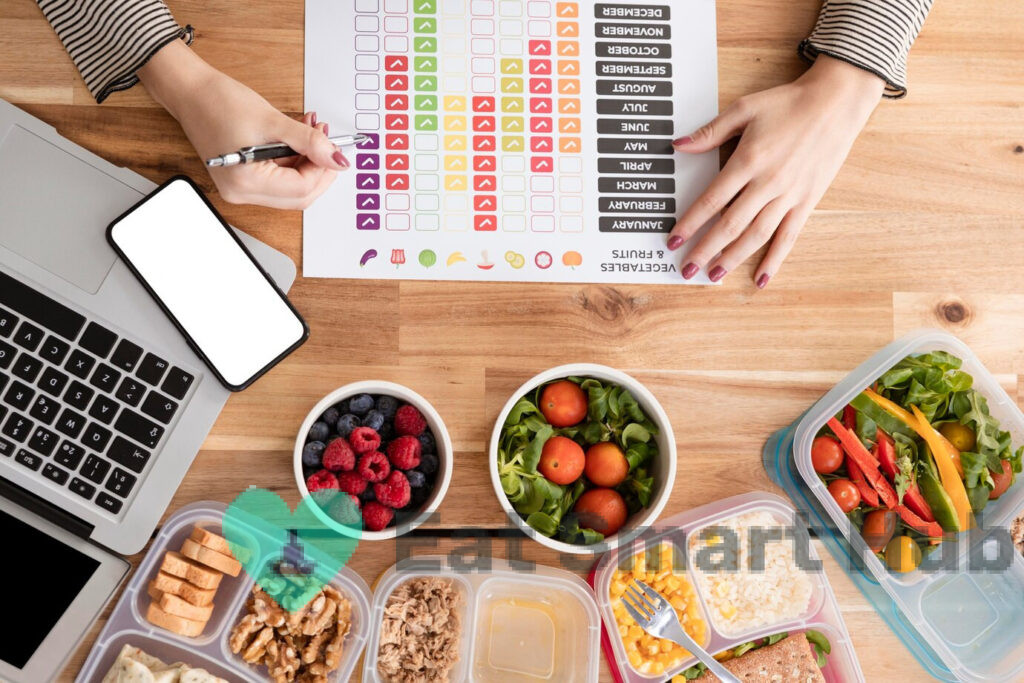
🧠 Nutrition for Teen Mental Health
Nutrition plays a critical role in adolescent mental health. A diet rich in whole foods and essential nutrients supports mood regulation, brain development, and stress resilience. Conversely, poor eating habits—especially those high in processed foods and added sugars—are linked to increased risks of depression, anxiety, and cognitive decline.
Fast Facts:
- Adolescence involves rapid growth—teens gain up to 50% of their adult weight and skeletal mass.
- This stage is prone to nutritional deficiencies, especially in calcium, iron, riboflavin, thiamin, and vitamins A and C.
- Most teens fail to meet dietary guidelines outlined by the USDA’s Food Guide Pyramid.
🧬 Core Nutrition for Teen Mental Health
Below are essential nutrition for teen mental health , These play a role in maintaining and enhancing mental wellness in teens:
| Nutrient | Mental Health Role | Top Food Sources |
| Omega-3 Fatty Acids | Reduce symptoms of depression/anxiety; support brain and neural development | Salmon, mackerel, sardines, walnuts, flaxseeds |
| B Vitamins | Aid serotonin and dopamine production; deficiency linked to depression | Leafy greens, eggs, whole grains, legumes |
| Vitamin D | Helps regulate mood; supplementation shown to improve depressive symptoms | Fatty fish, egg yolks, fortified cereals, sunlight |
| Magnesium & Zinc | Deficiency linked to anxiety, sleep issues, and irritability | Nuts, seeds, legumes, leafy greens |
| Antioxidants (C, E) | Combat brain inflammation and oxidative stress | Berries, dark chocolate, colorful vegetables |
| Fiber & Probiotics | Support gut-brain axis, serotonin regulation, and emotional balance | Yogurt, sauerkraut, kefir, whole grains, fresh produce |
🥗 Best Dietary Patterns for Teen Mental Health
The overall quality of the diet matters just as much as individual nutrients. Research supports the following eating patterns:
- Mediterranean-Style Diet: Rich in fish, fruits, vegetables, whole grains, and healthy fats; associated with reduced depression and better mood stability.
- Consistent Fruit & Veggie Intake: Even modest increases in produce can lead to measurable mental health improvements.
- Avoid Processed & Sugary Foods: These are linked to higher rates of depression, stress, and behavioral issues in teens.
🍽️ Healthy Eating Habits That Support Mental Wellness
Developing mindful and consistent food habits makes a big difference for adolescents.
1. Eat a Nutritious Breakfast
Teens who eat balanced breakfasts (including proteins, whole grains, and fruit) report lower levels of internalizing symptoms like sadness and anxiety.
2. Share Family Meals
Eating together promotes emotional resilience, enhances communication, and increases overall life satisfaction.
3. Practice Mindful Eating
Encourage teens to participate in cooking, gardening, and making food choices. This builds autonomy and nurtures emotional well-being.
👪 Practical Tips for Parents & Caregivers
Help your teen build a strong mental foundation with these simple, science-backed steps:
- Introduce brain-friendly foods: Start with fish, nuts, eggs, and leafy greens in familiar dishes.
- Boost produce intake: Try smoothies, fruit-based snacks, or veggie-packed meals.
- Incorporate probiotics: Yogurt, kefir, and fermented veggies support gut–brain health.
- Limit junk and sugary drinks: Swap soda for water, herbal teas, or homemade smoothies.
- Encourage involvement: Let teens help with meal prep or gardening to foster life skills and emotional growth.
- Be a role model: Demonstrate positive eating habits and a balanced lifestyle.
- Consider supplements: Talk to a pediatrician about omega-3s, vitamin D, or iron if deficiencies are suspected.
🏥 Expert Guidance from Bright Futures (U.S. Bureau of Maternal and Child Health)
Bright Futures outlines key dietary guidelines for adolescents:
- Eat three balanced meals per day, especially breakfast.
- Share meals with family whenever possible.
- Choose a variety of nutrient-rich foods and limit high-fat, low-nutrient snacks.
- Focus on whole grains, fruits, vegetables, lean proteins, and low-fat dairy.
- Include iron- and calcium-rich foods for bone and blood health.
- Opt for healthy school lunches or bring balanced meals from home.
- Maintain a healthy weight through nutrition and regular physical activity.
✅ Final Takeaway: Nutrition Is Mental Health Support
A teen’s diet can shape their mental and emotional resilience. Prioritizing nutrient-dense foods, consistent meal patterns, and mindful eating can greatly enhance cognitive function, emotional stability, and lifelong well-being.
📚 References
- Berk, M., et al. (2014). Relationship Between Diet and Mental Health in Children and Adolescents. American Journal of Public Health, 104(10), 31–42.
- Wahl, R. (1999). Nutrition in Adolescence. Pediatric Annals, 28(2), 107-111.
- www.health.harvard.edu
Sanduni Abeysinghe
(BSc, MSc, PGDE)
Registered Nutritionist
Read More from Eat Smart hub

